COVID-19 world updates: 30 cases of blood clot events after AstraZeneca jab in UK
The UK medicines agency has revealed 30 people suffered rare blood clot events after receiving the AstraZeneca jab but insist the benefits outweigh the risk.
Coronavirus
Don't miss out on the headlines from Coronavirus. Followed categories will be added to My News.
Thirty people suffered rare blood clot events after taking the AstraZeneca jab in Britain.
The UK medicines regulator said that there had been 22 reports of cerebral venous sinus thrombosis, an extremely rare brain clotting ailment, and eight reports of other clotting events associated with low blood platelets out of a total of 18.1 million doses given.
The Medicines and Healthcare Products Regulatory Agency said it had received no reports of clotting events following use of the vaccine made by BioNTech SE and Pfizer Inc.
The health officials said they still believe the benefits of the vaccine in the prevention of COVID-19 far outweigh any possible risk of blood clots.
“The risk of having this specific type of blood clot is very small,” it said.
“The expected benefits of both COVID-19 vaccines in preventing COVID-19 and its serious complications far outweigh any known side effects.”
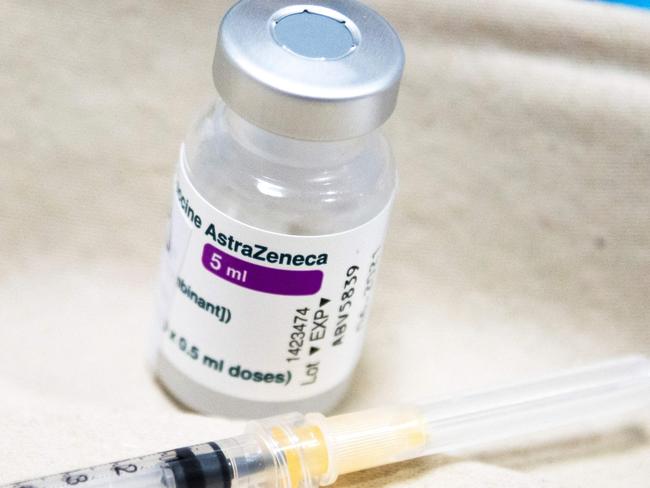
PFIZER ‘100 PER CENT’ VARIANT SUCCESS
Pfizer and BioNTech said on Thursday (local time) that their COVID-19 vaccine was highly effective against the South African variant in the latest phase of ongoing clinical trials.
No cases of the disease were observed in South Africa during the phase-three trial study among participants who had received their second dose, the companies said in a statement.
Several coronavirus variants with the potential to be more transmissible have caused global concern over whether existing vaccines will still protect the world from a virus that is constantly mutating.
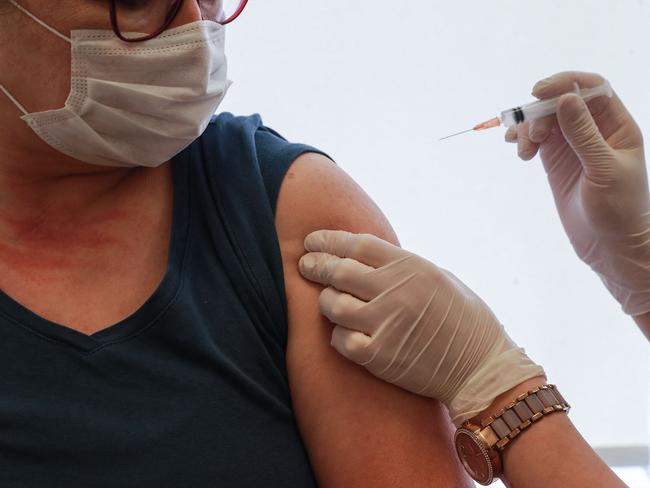
“In South Africa, where the B.1.351 lineage is prevalent and 800 participants were enrolled, nine cases of COVID-19 were observed, all in the placebo group,” the companies said.
The nine strains were sequenced and six of them were confirmed to be of B.1.351 lineage, they said.
“The high vaccine efficacy observed through up to six months following a second dose and against the variant prevalent in South Africa provides further confidence in our vaccine’s overall effectiveness,” said Albert Bourla, chief executive of Pfizer.
Overall, the vaccine was 91.3 per cent effective against COVID-19 in the analysis of 46,307 trial participants across several countries.
From the 927 confirmed symptomatic cases of COVID-19 in the trial, 850 cases were in the placebo group and 77 cases were in the vaccinated group.
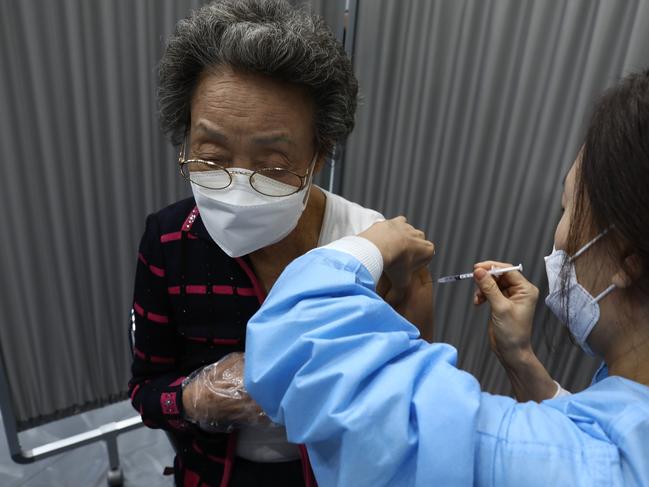
The vaccine was 100 per cent effective in preventing severe disease as defined by the US Centres for Disease Control and Prevention, and 95.3 per cent effective in preventing severe disease as defined by the US Food and Drug Administration.
Pfizer and BioNTech had said in January that “small differences” detected in tests comparing the original virus and the recent versions “are unlikely to lead to a significant reduction in the effectiveness of the vaccine”.
The companies said on Thursday (local time) the new data “support previous results from immunogenicity studies demonstrating that (the vaccine) induced a robust neutralising antibody response to the B1.351 (South African) variant, and although lower than to the wild-type strain, it does not appear to affect the high observed efficacy against this variant”.
Global deaths from COVID-19 have topped 2.8 million since the pandemic began a year ago, with vaccines seen as the only real chance of returning to some form of normality.
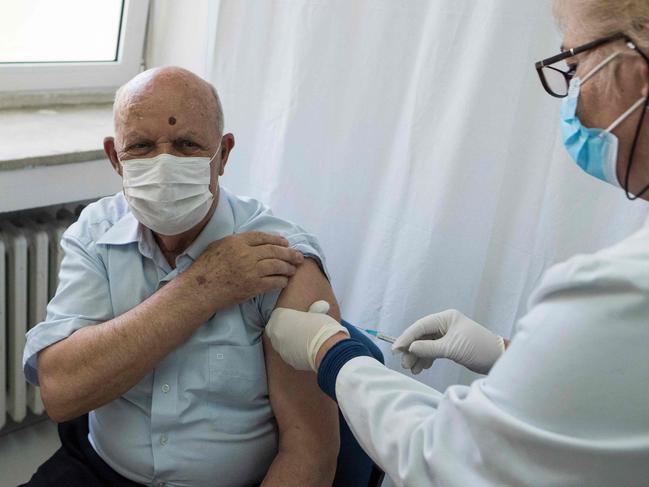
PALIN TESTS POSITIVE FOR COVID
Former US vice presidential candidate, Sarah Palin, has tested positive for the coronavirus, urging Americans to wear masks.
“I strongly encourage everyone to use common sense to avoid spreading this and every other virus out there,” Mrs Palin said in a statement to People magazine.
“There are more viruses than there are stars in the sky, meaning we’ll never avoid every source of illness or danger … But please be vigilant, don’t be frightened, and I advise reprioritizing some personal time and resources to ensure as healthy a lifestyle as you can create so when viruses do hit, you have at least some armour to fight it.”
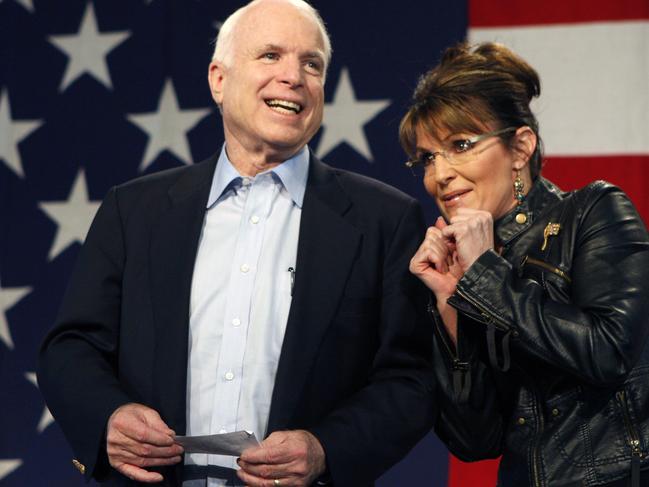
The 2008 Republican vice presidential nominee joked she had practice wearing masks after appearing on the US version of The Masked Singer in 2020.
“Through it all, I view wearing that cumbersome mask indoors in a crowd as not only allowing the new-found luxury of being incognito, but trust it’s better than doing nothing to slow the spread,” she said.
“And history will show we Masked Singer visitors were masked before being masked was cool.”
Mrs Palin revealed that her family was diagnosed with COVID-19 after one of her daughters woke up not being able to taste or smell, which is a symptom of the virus. The daughter “immediately had a positive COVID test, then was quarantined in isolation,” Mrs Palin said in her statement.

EUROPE’S VACCINE ROLLOUT ‘UNACCEPTABLY SLOW’
It comes as the World Health Organisation on Thursday slammed Europe’s vaccine rollout as “unacceptably slow” and said it was prolonging the pandemic as the region sees a “worrying” surge in coronavirus infections.
“Vaccines present our best way out of this pandemic. However, the rollout of these vaccines is unacceptably slow,” WHO director for Europe Hans Kluge said in a statement.
“We must speed up the process by ramping up manufacturing, reducing barriers to administering vaccines, and using every single vial we have in stock, now,” he said.
To date, only 10 per cent of the region’s total population have received one vaccine dose, and four per cent have completed a full vaccine series, the organisation said.
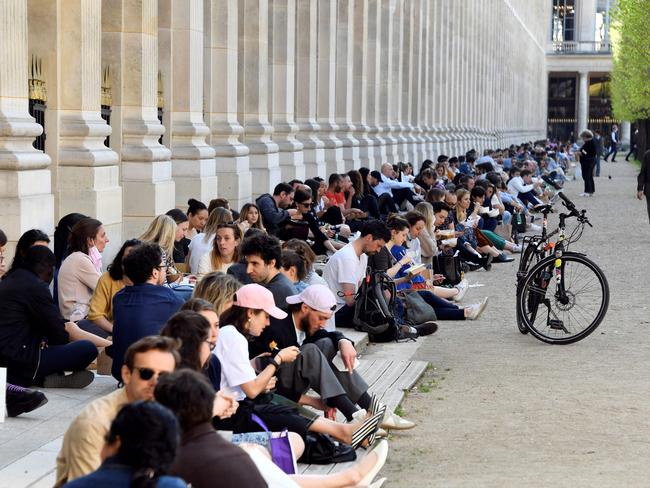
The WHO’s European region comprises 53 countries and territories and includes Russia and several Central Asian nations.
As of Thursday, more than 152 million doses have been injected in the WHO European region, representing 25.5 per cent of doses administered worldwide.
The WHO European region is home to 12 per cent of the world’s population. On average, 0.31 per cent of the population in the European region receives a dose every day. While this rate is almost double the global rate of 0.18 per cent, it is far below that of the US and Canada, which tops the chart at 0.82 per cent.
The WHO said Europe’s slow rollout was “prolonging the pandemic” and described Europe’s virus situation as “more worrying than we have seen in several months.”
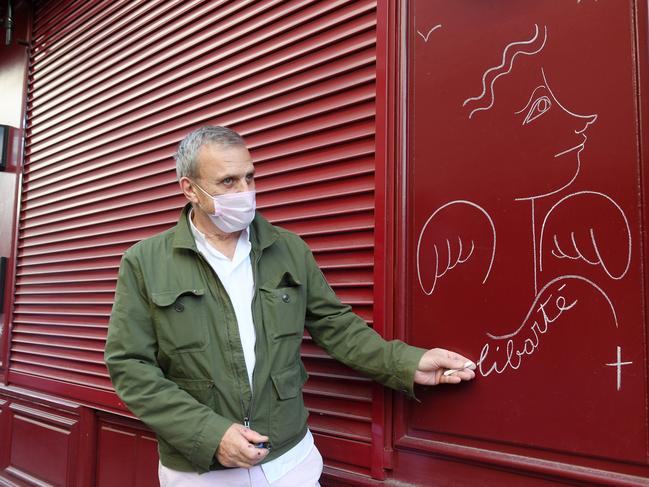
Five weeks ago, the weekly number of new cases in Europe had dipped to under one million, but “last week saw increasing transmission of COVID-19 in the majority of countries in the WHO European region, with 1.6 million new cases,” it said.
The total number of deaths in Europe “is fast approaching one million and the total number of cases about to surpass 45 million,” it said, noting that Europe was the second-most affected region after the Americas.
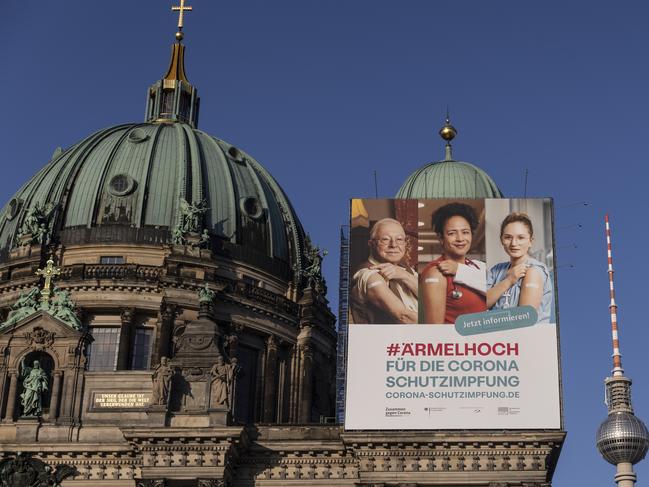
WORRYING NEW VARIANTS
The UN body warned that the rapid spread of the virus could increase the risk of the emergence of worrying new variants.
“The likelihood of new variants of concern occurring increases with the rate at which the virus is replicating and spreading, so curbing transmission through basic disease control actions is crucial,” Dorit Nitzan, WHO Europe’s regional emergency director, said in the statement.
New infections were increasing in every age group except in people aged 80 and older, as vaccinations of that age group begin to show effect.
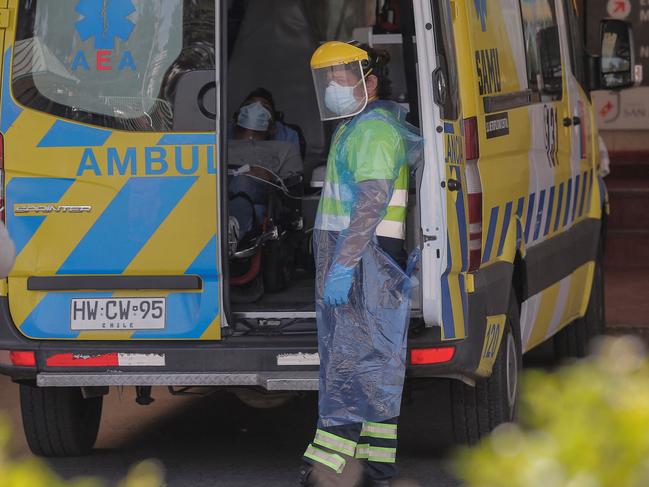
The WHO said the British variant of the virus was now the predominant one in Europe, and was present in 50 countries.
“As this variant is more transmissible and can increase the risk of hospitalisation, it has a greater public health impact and additional actions are required to control it,” it said.
Those actions included expanded testing, isolation, contact tracing, quarantine and genetic sequencing.
Meanwhile, the WHO said lockdowns “should be avoided by timely and targeted public health interventions”, but should be used when the disease “overstretches the ability of health services to care for patients adequately.” It said 27 countries in its European region were in partial or full nationwide lockdown, with 21 imposing night-time curfews.
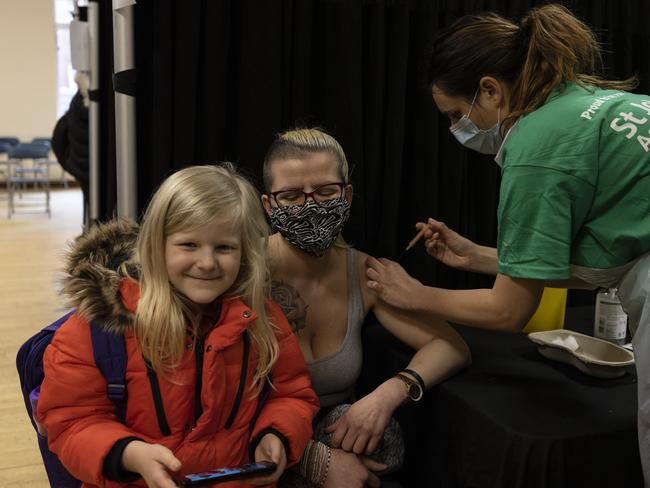
NZ DEFENDS WHO SILENCE
New Zealand has explained its absence from a joint statement on behalf of allied countries on the findings of the World Health Organisation’s report into the origins of the coronavirus.
The long awaited and much derided report released on Wednesday (AEDT) ruled out the possibility of a lab leak as “extremely unlikely”, saying the virus had most probably jumped from bats to humans via an intermediary animal.
Australia joined 13 other countries including the United States, Japan and Canada to express their “shared concerns” about the report’s findings. But New Zealand, which was invited to sign, did not do so.
That decision generated criticism from academics who questioned whether New Zealand is trying to appease China.
“At what point does NZ’s quiet shift on China, look more like timidity, even appeasement?” Anne-Marie Brady, a professor at the University of Canterbury and an expert on China, said on Twitter.
At what point does NZ's quiet shift on China, look more like timidity, even appeasement? Oz, Canada, Czechia, Denmark, Estonia, Israel, Japan, Korea, Latvia, Lithuania, Norway, Slovenia, UK & US signed this joint statement. NZ was invited, would not sign.
— Professor Anne-Marie Brady (@Anne_MarieBrady) March 31, 2021
https://t.co/fOhQPsOmKE
In a statement to Reuters, the New Zealand foreign ministry said it was waiting for a response from their scientific experts.
“Our scientific experts, who have been fully engaged with the wider COVID response, are analysing the report. When they have done so, we will decide on the most appropriate way to comment on the mission,” the foreign ministry said.
The foreign ministry added it was under no pressure to remain silent.
“New Zealand’s decision not to join any statement was made independently,” it said.
FRANCE PLUNGED INTO LOCKDOWN
France has been plunged into a new month-long nationwide lockdown, including strict curfews, at the same time as Britain eases restrictions following its successful vaccine rollout.
President Emmanuel Macron, who incorrectly labelled the AstraZeneca/Oxford jab as “quasi ineffective”, addressed the nation to deliver the new blow ahead of Easter.
Cases in France hit almost 40,000 a day, while Britain, which was hard hit over December, is now emerging from the crisis.
The UK has vaccinated more than 30 million people, or half its population, with a program including both the AstraZeneca and Pfizer/BioNTech jabs.
Paris had already endured the tough restrictions, including the closure of shops, cafes and bars, but those rules have been expanded across the country.
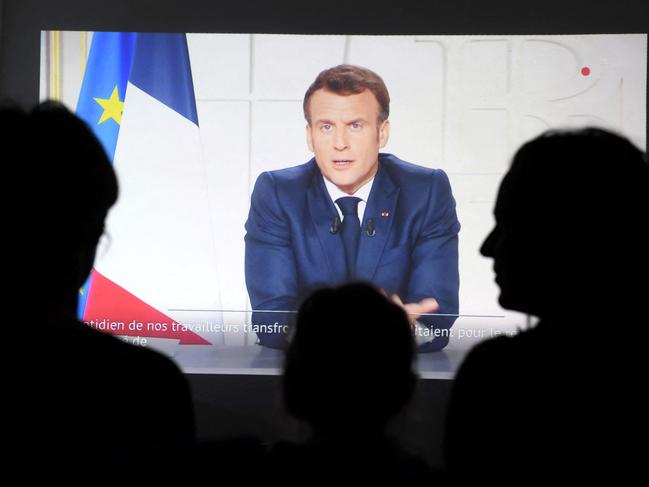
France had been trying to avoid a lockdown, but it’s glacial vaccine program and its unwarranted talking down of the AstraZeneca jab have meant Mr Macron was backed into a corner.
But instead of taking responsibility for his government’s failures, he blamed the British, as relations between the countries hit a new low following Brexit.
“We are faced with a new situation. We are involved in a race. Propagation of a new variant that was identified by our British neighbours’ must be dealt with,” he said.
“It is the best solution to slow down the virus. We will lose control if we do not move now.”
The UK, or B117 variant, has spread across Europe, with Germany also under some lockdown conditions.
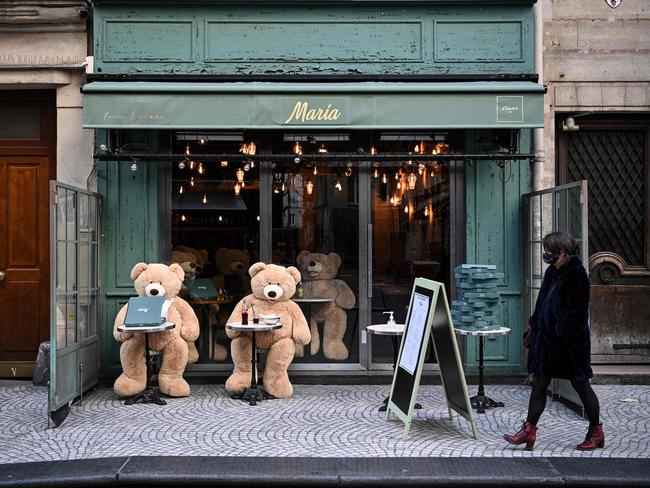
However, in Britain, cases have plunged in recent weeks, as more than 50 per cent of the population now has coronavirus antibodies, which has been credited to the vaccines and immunity among those who have recovered.
The UK has rolled out almost 31 million first doses, and 4.1 million have had a two-dose regimen.
Germany has suspended use of the Oxford jab for under 60s, but the European Medicines Agency has said there was “no evidence” to justify restrictions.
The UK has seen one of the world’s largest real-world trials of the Oxford jab, with cases and deaths plummeting.
There were 43 deaths in the UK announced on Wednesday, and 4,052 cases, that was less than half the figures announced at the same time last week.
Some vaccination centres in London were able to provide walk-in jabs because of a surplus of supply on Wednesday.
CHINA VACCINE
Two Chinese coronavirus vaccines deemed safe and effective by the World Health Organisation could provide a potential boost to Australia and Europe, both of whom are struggling to roll out COVID vaccines fast enough.
Fewer than 600 million jabs have been given out across the world, three months after vaccination programs began in earnest in Western countries and leaders hailed the drugs as the only safe way out of punishing lockdowns.
Vaccine specialists at the WHO did not issue any advice on how to use China’s jabs, saying they would wait until a decision had been taken on whether to grant them emergency licences.
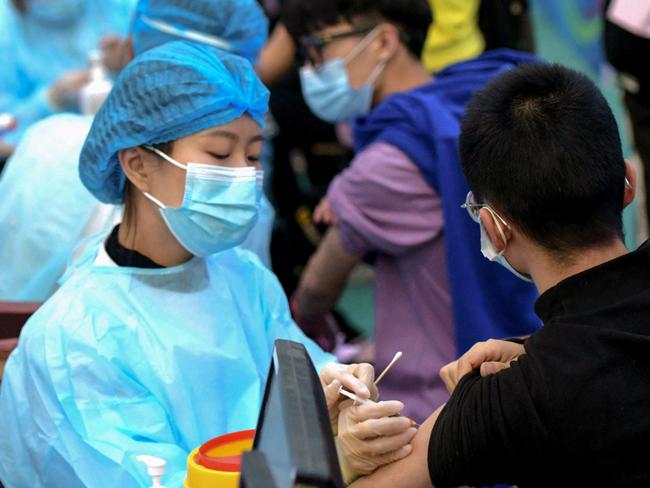
The experts said the vaccines from Sinovac and Sinopharm “lacked data” for older age groups and people with medical conditions other than COVID.
It comes as another vaccine maker, Pfizer-BioNTech, was pushing ahead with its plans to ramp up production and rollout — saying on Wednesday (local time) new data from the US showed its jab was 100 per cent effective on 12 to 15-year-olds.
The firm said it wanted to start vaccinating youngsters in the US before the start of the next school year.
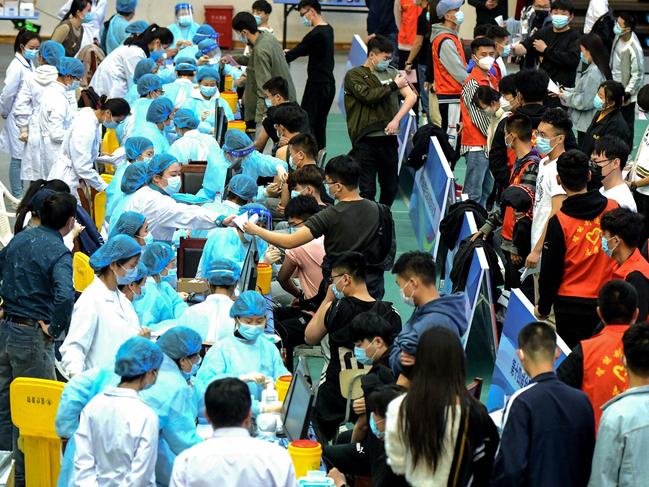
The US has already rolled out almost 150 million vaccines doses, far more than any other country. But it has also suffered more than 550,000 deaths, the highest death toll in the world.
Globally, the virus has killed more than 2.8 million people since it emerged in the Chinese city of Wuhan in late 2019.
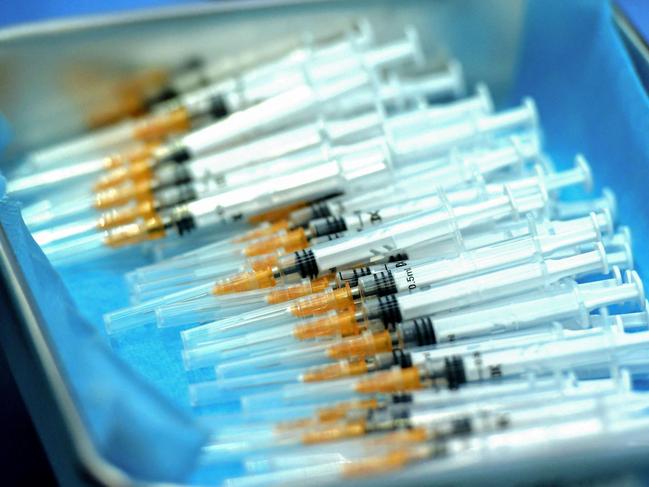
‘NO SCIENTIFIC COHERENCE’
Large parts of Europe are still battling high infection rates, with most of the continent still living under lockdowns or other restrictions.
In Paris, intensive care beds are running low and infection rates are approaching last year’s peak, pushing medics to breaking point.
“Since January, we have had political decisions with no scientific coherence,” said Gilles Pialoux, head of infectious diseases at one Paris hospital.
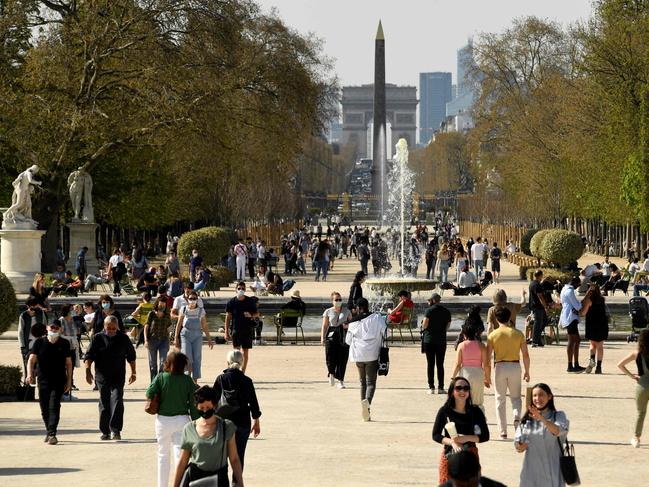
“We’ve lost so much time that the measures now will be harder and last for longer.”
The cycle of restrictions and infections is not over in China either, where a city on the Myanmar border faces lockdown — the first such move in months.
All residents in the city of Ruili will be tested for the virus and everyone will have to observe “home quarantine” for a week after six cases were detected, say officials.
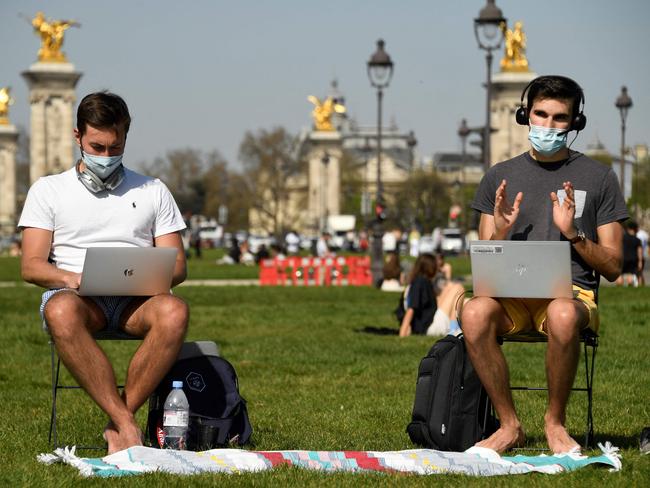
‘NO SPECIFIC RISK’
The EU’s drug regulating agency said Wednesday (local time) it had found no specific risk factors connecting the AstraZeneca vaccine to reports of blood clotting.
But the European Medicines Agency (EMA) added: “A causal link with the vaccine is not proven, but is possible and further analysis is continuing.”
Some EU countries have restricted access to the vaccine over reports of blood clotting.
The COVID crisis has pushed health systems to the brink, brought huge challenges for politicians and devastated the global economy.

But Britain released economic data suggesting it had bounced back stronger than expected in the second half of last year. Overall output expanded by 16.9 per cent in the third quarter, stronger than the 16.1 per cent predicted.
Longer-term prospects for women in the world economy look gloomier however, according to the World Economic Forum.
While the forum’s 2019 Global Gender Gap Report had suggested gender parity would be reached in many sectors in less than a century, this year’s report pushes it back to 135.6 years.
“There has been sort of a rollback to traditional behaviours inside the home, and that then creates a double shift for women who are working,” said WEF’s Saadia Zahidi.
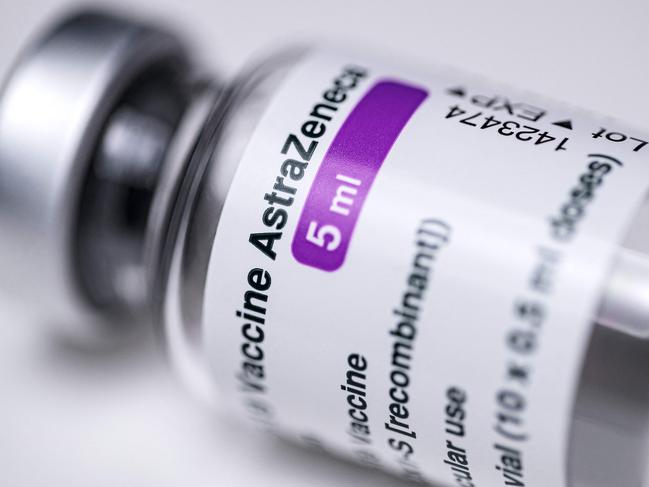
AUSTRALIA VOICES ‘CONCERN’ OVER WHO REPORT
Australia joined 13 other countries including the United States, Japan and Canada to express their “shared concerns” about the World Health Organisation’s report into the origins of the coronavirus pandemic.
The WHO-China joint investigation team released a long awaited and much derided report on Wednesday (AEDT) which ruled out the possibility of a lab leak as “extremely unlikely”, saying the virus had most probably jumped from bats to humans via an intermediary animal.
“The mission of the WHO is critical to advancing global health and health security,” the joint statement released by the US said.
“With such an important mandate, it is equally essential that we voice our shared concerns that the international expert study on the source of the SARS-CoV-2 virus was significantly delayed and lacked access to complete, original data and samples.
“Scientific missions like these should be able to do their work under conditions that produce independent and objective recommendations and findings.”
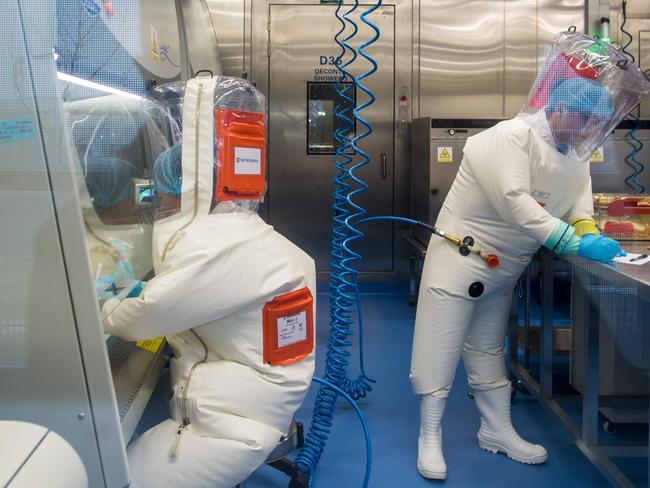
WHO chief Dr Tedros Adhanom Ghebreyesus has demanded a new probe into the Wuhan lab leak.
Dr Tedros urged investigators to look deeper into the lab theory.
In a briefing to member states, he stressed it also “raises further questions that will need to be addressed by further studies”.
“Although the team has concluded that a laboratory leak is the least likely hypothesis, this requires further investigation, potentially with additional missions involving specialist experts, which I am ready to deploy,” Dr Tedros said.
“I do not believe that this assessment was extensive enough. Further data and studies will be needed to reach more robust conclusions,” he added.
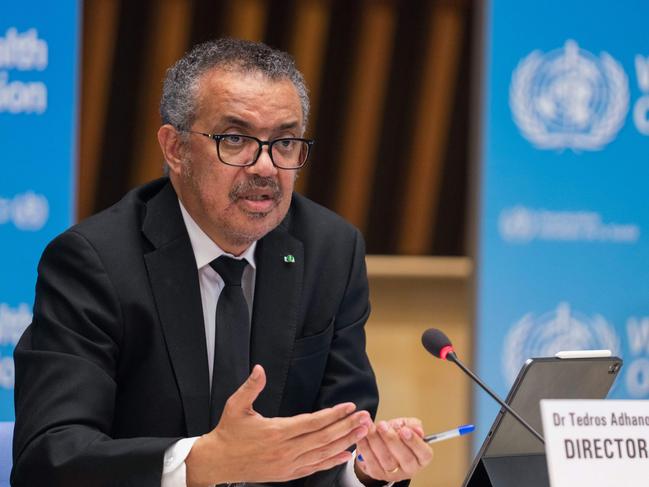
The WHO chief also voiced concern that the international team had difficulty accessing raw data during the mission – with China feared to have concealed much information about the early days of COVID.
“I expect future collaborative studies to include more timely and comprehensive data sharing,” he said.
The team of experts from WHO spent a week in the Communist Party state where COVID originated as they were given a carefully stage-managed look at data and evidence accrued by China.
China has long been accused of attempting to cover up or distort its role in the story of COVID, and even the White House has raised questions over the authenticity of the probe.
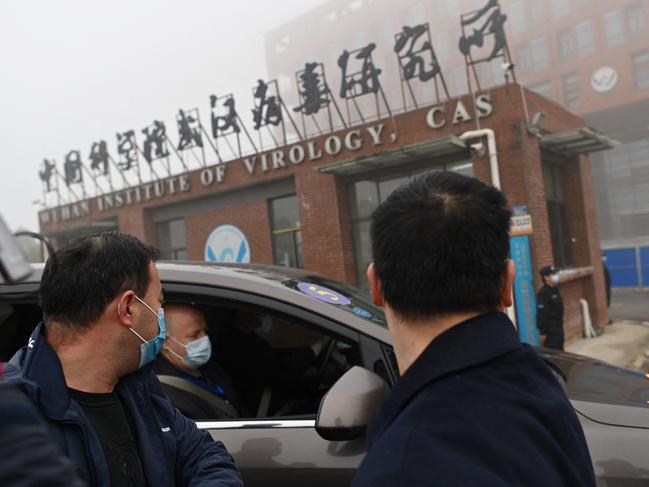
The theory that the new coronavirus may have escaped from a lab in Wuhan, the Chinese city where it was first detected in humans in December 2019, was a US favourite under former president Donald Trump.
China has always flatly rejected the hypothesis.
China’s foreign ministry said in a statement: “Actions politicising this search for the origins will only seriously hinder global co-operation in this regard, undermine the global anti-epidemic efforts and cause more loss of life.”
And the team of international experts sent to Wuhan by the WHO earlier this year to probe the pandemic’s origins have also all but ruled it out.
Their long-delayed report, written alongside the team’s Chinese counterparts ranked four hypotheses in order of probability.
They said the SARS-CoV-2 virus that causes COVID-19 disease most probably jumped from bats to humans via an intermediary animal, judging a lab leak to be an “extremely unlikely” source.
MORE DATA CALL
Dr Tedros also urged China to be more forthcoming with data.
Dr Tedros said the Wuhan mission found that the first detected case had symptom onset on December 8, 2019 — but to understand the earliest cases, scientists would benefit from full access to data stretching back to at least September 2019.
The team “expressed the difficulties they encountered in accessing raw data. I expect future collaborative studies to include more timely and comprehensive data sharing,” said Tedros.
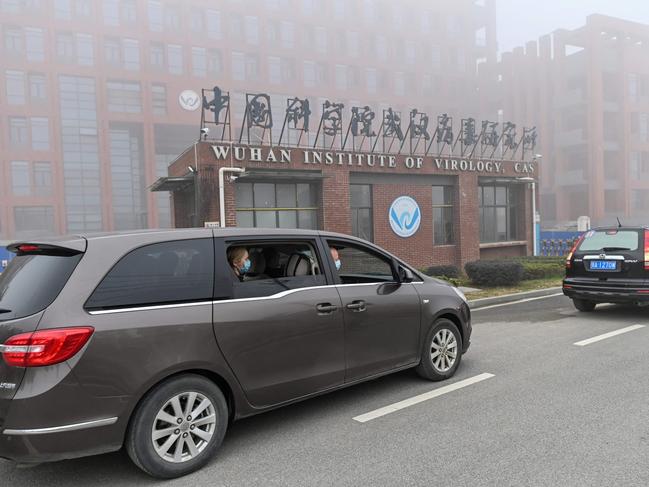
Hitherto, the WHO chief has faced allegations throughout the pandemic of being too close to China — notably from the former Trump administration, which zeroed in on the lab leak theory.
Peter Ben Embarek, who led the international mission to Wuhan, said the report had “only scratched the surface” in the quest to find the origins of the pandemic, which has killed nearly 2.8 million people and battered the global economy.
The WHO food safety expert said he was “optimistic” the team would discover more “and get closer to the final answer”.
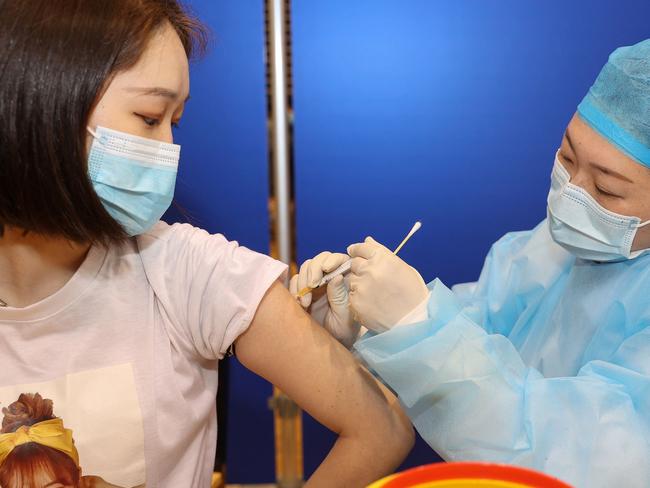
LAB LEAK ‘FIRST REACTION’
On the laboratory accident hypothesis, the Danish scientist said the natural initial reaction to the outbreak of the virus, in a city housing virology labs, was to make the connection between the two.
“Even the staff in these labs told us that was their first reaction,” Dr Embarek told journalists.
“They all went back to their records … but nobody could find any trace of something similar to this virus in their records or their samples.
“Nobody has been able to pick up any firm arguments or proof or evidence that any of these labs would have been involved in a lab leak accident.”
That said, Dr Embarek added: “we haven’t done a full investigation or audit of any of the labs.”
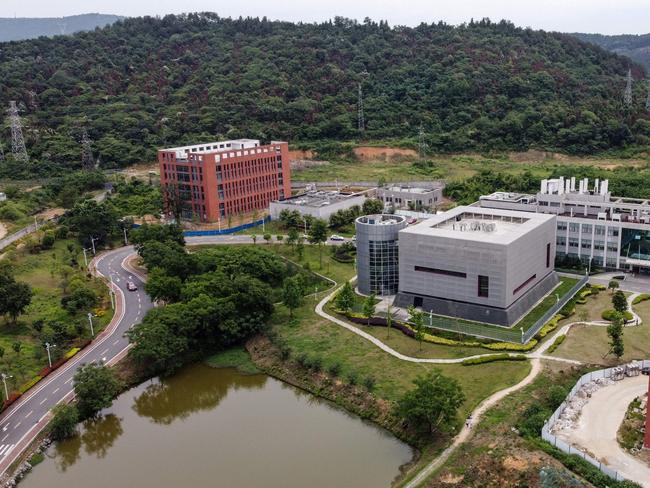
He said there had been hours of discussions with laboratory staff and management. The documentation seen by the team had not led them to believe there was anything further left to explore.
But the balance of the hypotheses could be reassessed as further leads come in, he added.
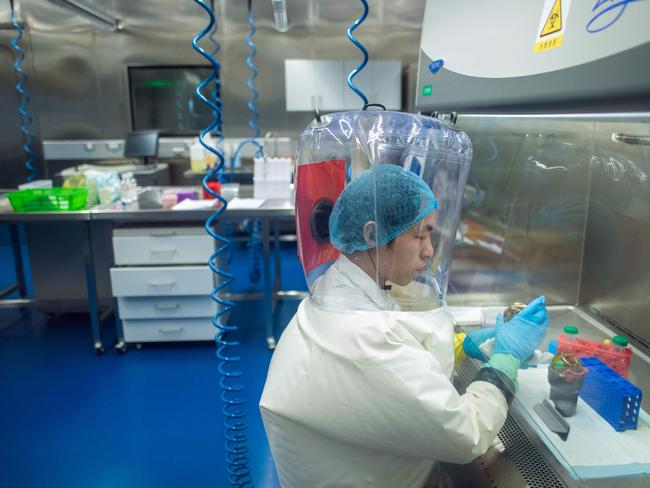
TRUMP’S TOP DIPLOMAT CALLS REPORT ‘A SHAM’
It comes as former US secretary of state Mike Pompeo, a strident critic of China, on Tuesday alleged that an international report into COVID’s origins was a cover-up backed by Beijing.
“The WHO report is a sham continuation of the CCP-WHO disinformation campaign,” Mr Pompeo wrote on Twitter, referring to the Chinese Communist Party.
“It’s why I recommended we leave WHO.”
Alluding to the UN body’s early downplaying of the virus, Mr Pompeo charged that WHO chief Dr Tedros with Chinese President Xi Jinping “to hide human to human transmission at a CRITICAL juncture.” The Wuhan Institute of Virology “remains the most likely source of the virus — and WHO is complicit,” Mr Pompeo said.
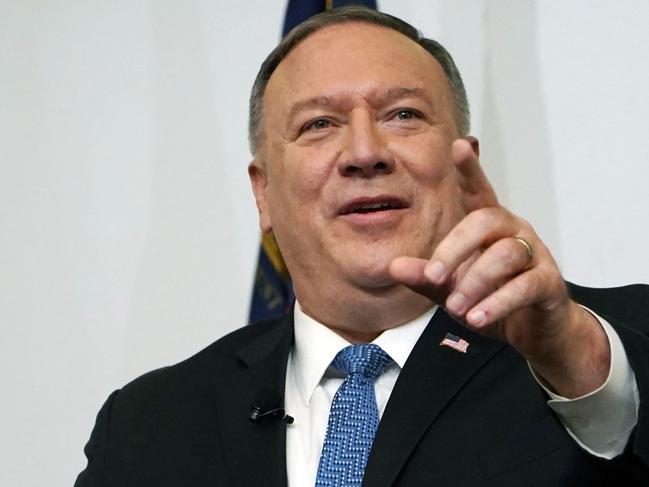
Mr Pompeo, who is widely seen as aspiring to run for president, took the lead under former president Donald Trump in blaming China for the pandemic that has claimed some 550,000 lives in the United States.
In his final days in office, Mr Pompeo released what he said were US findings that workers at the laboratory had fallen ill in 2019 with symptoms that were reminiscent of COVID or other illnesses.
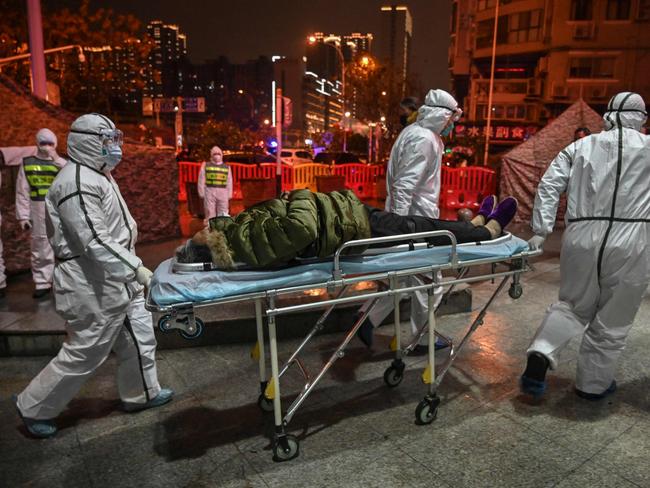
President Joe Biden’s administration quickly reversed course to stay in the WHO, saying global co-operation on health was paramount, but has also criticised Beijing for a lack of transparency including in not giving more access to the expert team.
Critics have charged that Mr Trump’s insistence on blaming China for the virus was a political ploy to deflect blame as he came under heavy pressure over his handling of the pandemic.
BERLIN, MUNICH HALT ASTRAZENECA JABS
The German cities of Berlin and Munich on Tuesday (local time) suspended vaccinations with the AstraZeneca jab for under-60s, as further reports emerge of blood clots among people who have received it.
“We are provisionally stopping vaccinations with AstraZeneca for under-60s,” said Berlin’s health Minister Dilek Kalayci, citing “new data about side effects”.
She said it was a “precautionary measure” pending an official recommendation from federal health authorities.
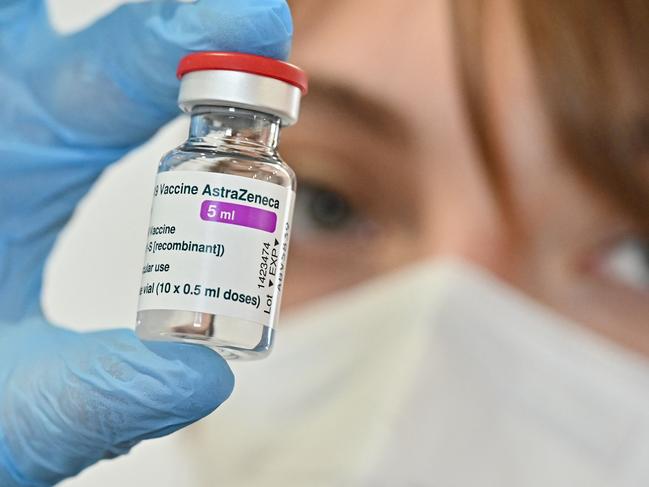
The southern city of Munich announced its own suspension shortly afterwards and reports suggested the Brandenburg region had followed suit.
Germany’s regional and federal health ministers will meet at short notice on Tuesday evening with the vaccine commission expected to make a new recommendation soon.
“We have no serious cases of side effects in Berlin,” said Kalayci, adding that “everyone who has already received a first jab of AstraZeneca has very good protection”.
Germany’s medicines regulator Paul Ehrlich Institute (PEI) has now reported 31 cases of blood clots in people who have received AstraZeneca, Spiegel magazine reported on Tuesday (local time).
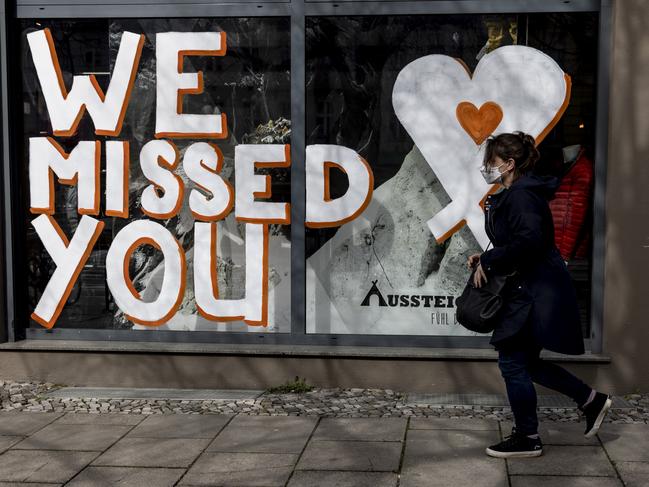
Almost all cases are reportedly in younger and middle-aged women, prompting several German hospitals to suspend the use of the jab for women under 55 this week.
A clinic in North-Rhine Westphalia, Germany’s most populous state, said it was halting AstraZeneca jabs to investigate two reported cases of thrombosis, while Berlin’s Charité hospital extended its suspension to all under-60s following Kalayci’s announcement.
On Monday, Canada also recommended halting the use of the jab for under-55s “pending further analysis”.
The AstraZeneca vaccine has had a rollercoaster ride, with Britain, which developed it, staunchly supporting its use, South Africa outright rejecting it, and more than a dozen EU nations suspending shots in mid-March before most restarted rollouts but with a patchwork of age restrictions.
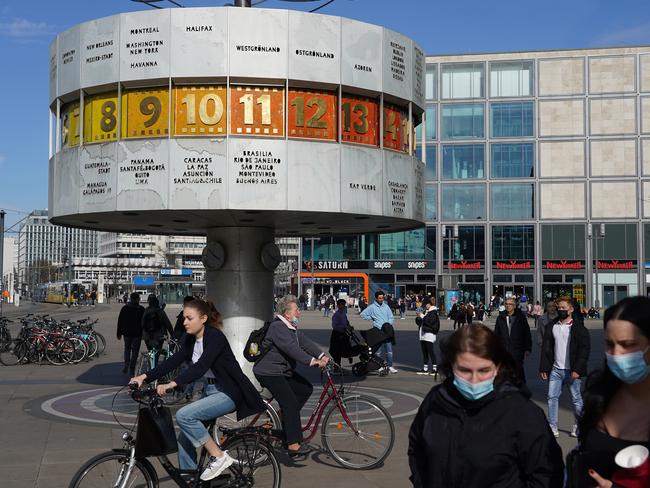
France has limited its use to over-55s, while Spain to under-65s. Germany’s vaccination campaign has been sluggish, with official figures showing around 11 per cent of the population have received a first dose so far.
Meanwhile, Germany will step up random controls along its land borders to check that travellers arriving in the country are carrying a negative COVID test, Interior Minister Horst Seehofer said on Tuesday (local time).
“Regardless where you’re arriving from, from Poland, France, or Denmark, everyone should expect to be checked,” Mr Seehofer told reporters. The random checks would occur on German territory after vehicles have crossed into the country.
Along the Czech frontier, hit hard by more contagious virus strains, police will continue to carry out systematic checks, he added.
– with Shoba Rao and Nadia Salemme
Originally published as COVID-19 world updates: 30 cases of blood clot events after AstraZeneca jab in UK




